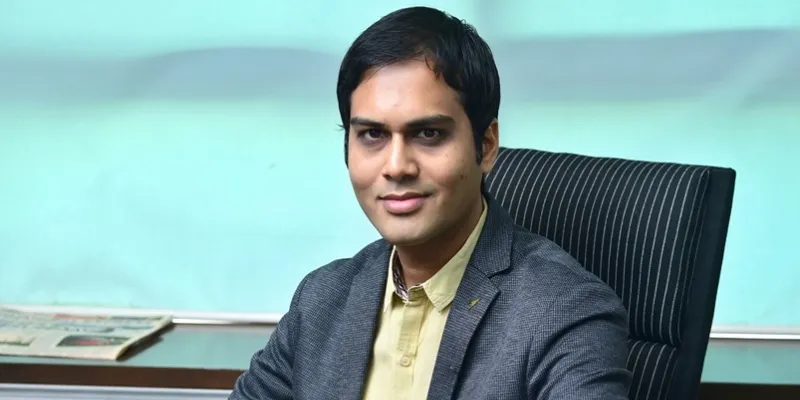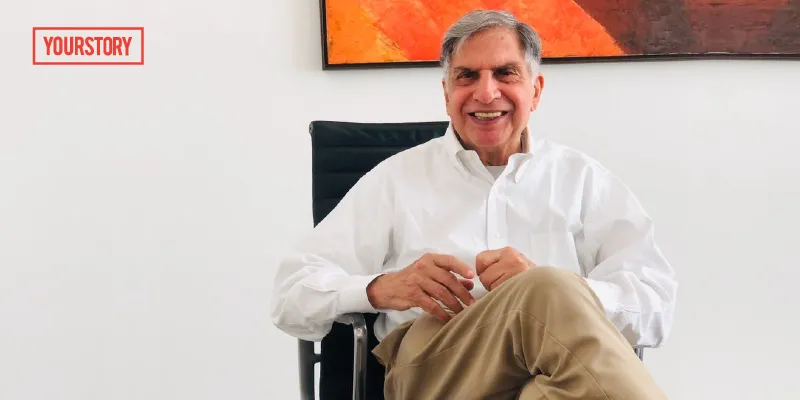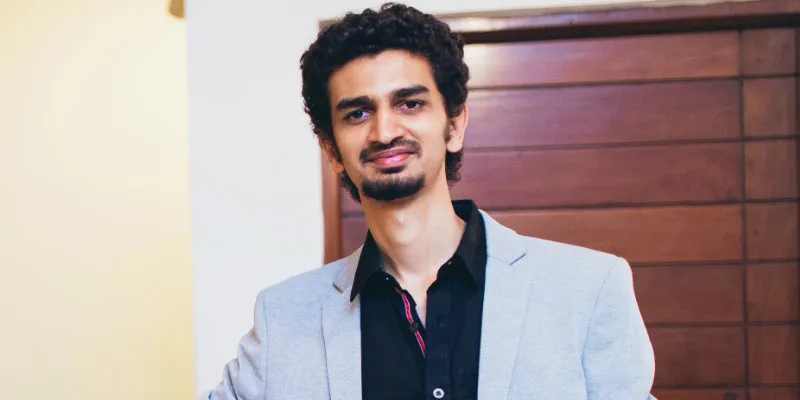WATCH: The week that was - From a candid conversation with Ratan Tata to behind the scenes with AWS’ SageMaker and fintech startup Lendingkart
In an interview with YourStory Founder Shradha Sharma, Ratan Tata reveals what defines him as a person, and his dreams for an equal opportunity India. Our wrap also tells you about all the disruptive startups and enthusiastic entrepreneurs we covered this week.
When Harshvardhan Lunia returned to his hometown, Ahmedabad, his family was a little baffled. The young CA, after all, seemed to have it all: a cushy job at ICICI’s corporate office in London, the financial capital of the world.
But Harshvardhan had different plans. It was 2014, and India was reaching a turning point. He noticed that businesses and SMEs were being run by the younger generation. Harsh and his friend, Mukul Sachan, felt there was a big gap that existing financial models weren’t able to solve and the idea for Lendingkart slowly started taking shape.
“These are people who do not have the capital and resources, but can run a business and are in need of working capital. We realised that traditional banks and NBFCs weren’t the best option as they looked at the borrower as someone who is a fraud and who would possibly default. However, we come with the idea that a borrower wants to return the loan. In all the 70,000 loans we have disbursed, we have had only 38 frauds,” says Harsh, the CEO and Co-founder of Lendingkart.

Harshvardhan Lunia, CEO and Co-founder of Lendingkart Technologies.
From lending to let's move on to the rise of gaming in India. If 2019 was about gaming going mainstream in India, penetrating across ages, gender groups, and geographies, 2020 is expected to see that expansion of that growth.
Largely driven by online and mobile gaming, the sector is growing at a CAGR of 22 percent and is likely to touch $1 billion in revenue by the end of 2020.
It’s possible that a few more gaming unicorns might be born. New, immersive gaming experiences will be created and gaming technologies will become more affordable and accessible. More localised games will be launched, and fantasy sports will go beyond cricket. 2020 is definitely going to be the year for games.
After all the fun and games, let us take a trip to the south. Chennai is a SaaS hub, and it’s also the place where the idea of Amazon's Web Services ML model was born.
Many believe SageMaker, the machine learning (ML) service from AWS, has truly democratised the adoption of artificial intelligence (AI) and data science by making it available for developers, corporations, and laymen alike. What you may not know is that the idea behind this AWS offering took root in Chennai a few years ago, when a software engineer on an annual pilgrimage back home was nursing a bad bout of jet jag.

Swami Sivasubramanian, the VP, Machine Learning, at AWS, conceptualised the SageMaker while dealing with jet lag.
Swami Sivasubramanian, VP, Machine Learning, AWS, is considered a pioneer in cloud computing. The 41-year-old joined Amazon in 2005 after completing a PhD in distributed computing, making him one of the early employees for an idea that is now a $36 billion ARR business. Over the years, he has built 40 AWS services along with his team.
Rata Tata is a national icon. The 81-year-old doyen of the Tata group is one of India’s most influential business leaders, and has largely eschewed the public eye for the most part of his life.
In a deeply personal, honest, and candid interview, he reveals what defines him as a person; his dreams for an equal opportunity India; and his advice for the young generation of aspiring Indians.

Mr Ratan Naval Tata, Chairman Emeritus of Tata Sons and Chairman of the Tata Trusts.
What is that one quality that he thinks defines him? He ponders and offers a profoundly honest and poignant answer. “It's difficult for me to say, except that I have tried to treat all people equally,” Mr Tata tells Your Story, speaking slowly and deliberately, as if searching for just the right words to articulate his feeling.
“Whether it’s a poor person on the street or a kid selling magazines as against a millionaire or a billionaire, I talk to them and treat them all the same way. I'm aware that I do that, and I do that not for show, but because of the feeling that I think everyone deserves recognition as a human being,” he adds.
There’s a purpose and an emphasis with which he utters every word. You can almost hear the question in his voice – the one that plagues every compassionate, empathetic, and concerned soul: shouldn’t all people be treated equally? Doesn’t everyone deserve an equal opportunity in life?
From the icon, let’s move on to startups that we believe can help shape the future.
The Indian startup ecosystem is dominated by the likes of Flipkart, Paytm, Ola, Swiggy, and Zomato, but there are also many deep tech startups that solve core software engineering challenges.
Among these is Harness, a Silicon Valley-headquartered technology company that has its research and development centre in Bengaluru. Co-founded by Jyoti Bansal, who shot to fame when his earlier venture, AppDynamics, was acquired by Cisco for $3.7 billion in January 2017, the startup believes in providing exposure to engineers early in their career by giving them tough problems to solve.

Harness Co-founder and CEO Jyoti Bansal.
“There are two kinds of engineers: one scared of hard problems and others who get excited about solving them,” Jyoti says. Harness is cultivating, building, and nurturing software engineers passionate about solving tough problems. The startup aims to simplify the entire software delivery process so that software engineering teams can "move fast and ship code effortlessly". It is doing this by bringing the “industry’s first Continuous Delivery-as-a-Service platform to market”.
And now, moving on to Techie Tuesday.
“The legacy definition of engineering only referred to building and constructing structures out of abstract patterns, which was considered 'hi-tech' at the time. Today, as technology is being commoditised, the focus is now on elements like design and aesthetics.”

Our techie of the week is Nikhil Kumar, a secret warrior at IndiaStack who helped make UPI a reality.
This is something Lalitesh Katragadda, the former Country Head of Google India Products, and a fellow at IndiaStack, told a confused Nikhil Kumar, Co-founder and Chief Evangelist of Setu, a few years ago. The latter applied it to his own work, which led him to envision a line of products that would eventually transform the way India interacted with the internet.
Along the way, he discovered the power of co-creation in technology, and how it leads to building large tech ecosystems. Here is how Nikhil, who is mentored by Nandan Nilekani, built his company.
(Edited by Teja Lele Desai)








